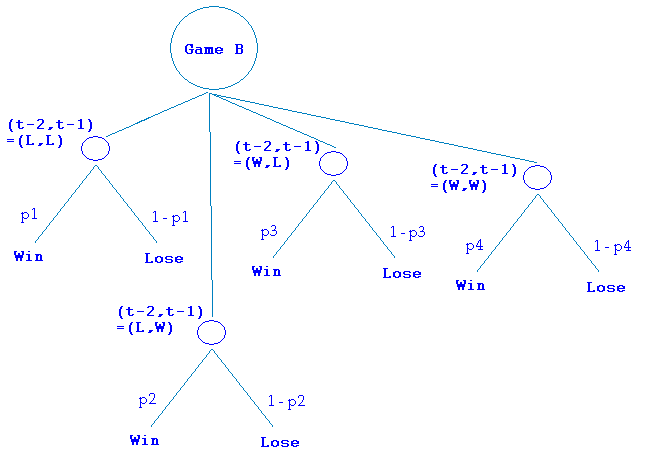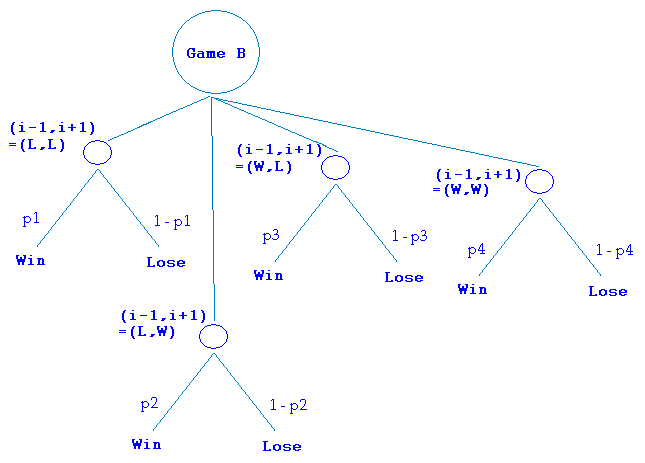| Home | Departments | Search |
 |
.gif) |
|
IntroductionThere is an old saying that says, "too many cooks, spoil the broth." In this web page the inverse is introduced, that is "many bad cooks, make good soup." From simple mathematics, we know that negating a negative number produces a positive number. In a game of chess, you might sacrifice pieces in order to win the overall game. But, can two losing games be set up to produce a winning scenario? The answer is yes. This counterintuitive behaviour is called "Parrondo's Paradox." Parrondo's games were devised by the Spanish physicist Juan M. R. Parrondo in 1996 and they were presented in unpublished form at a workshop in Torino, Italy. After about three years, in 1999, Harmer and Abbott published the seminal paper on the games, naming them after Parrondo who's genius inspired them. The main idea of Parrondo's paradox is that two individually losing games can be combined to win via deterministic or non-deterministic mixing of the games. There has been a lot of research on Parrondo's games after the first published paper, giving birth to new games such as history-dependent games (instead of capital-dependent) and cooperative games (multi-player games instead of one player). Some workers have criticized the use of the term “paradox”—however we use it in the sense of an apparent paradox and this is comparable to existing terminology, such as in “Simpson’s paradox," the “Braess paradox” and the "renewal paradox." Original Parrondo's games (capital
dependent)
| |||||||||||||||||||||||||||||||||||||||||||||||||||||||||||||
Sub-game: probability of winning |
State at (t - 2) |
State at (t - 1) |
p1 |
Lose |
Lose |
p2 |
Lose |
Win |
p3 |
Win |
Lose |
p4 |
Win |
Win |

Inspired by history dependent games, Toral devised another new family of Parrondo's games called "cooperative Parrondo games." Instead of having one player to play with the banker (banker is defined as one who makes the payoff for a player who wins and takes the payoff from a player who loses), we have multiple players, say from i = 1, 2, ..., N. Assume that all the players form a "ring" such that player N is sitting between player N - 1 and player 1, and so on.
On each round, only one player will play the games. So, each player will wait for his turn to play the games, or a random selection of players can be carried out. If a player wins a game, his state will be assigned to "win," otherwise assigned with "lose." A player keeps his state until his next round of game is played.
Similar to history dependent games, Game A remains unchanged as defined in the original Parrondo's games. The structure of Game B in cooperative Parrondo's games is similar to one in history dependent games but not exactly the same. There are also four sub-games that makes up Game B, but the decision on which sub-game to be played at each round of player i is based on the state of two neighbour players, i - 1 and i + 1.
Sub-game: probability of winning |
State of player (i
- 1) |
State of player (i
+ 1) |
p1 |
Lose |
Lose |
p2 |
Lose |
Win |
p3 |
Win |
Lose |
p4 |
Win |
Win |

|
| |
| Copyright © The University of
Adelaide 2003 Last Modified Derek |
|
| Copyright | Privacy | Disclaimer | |